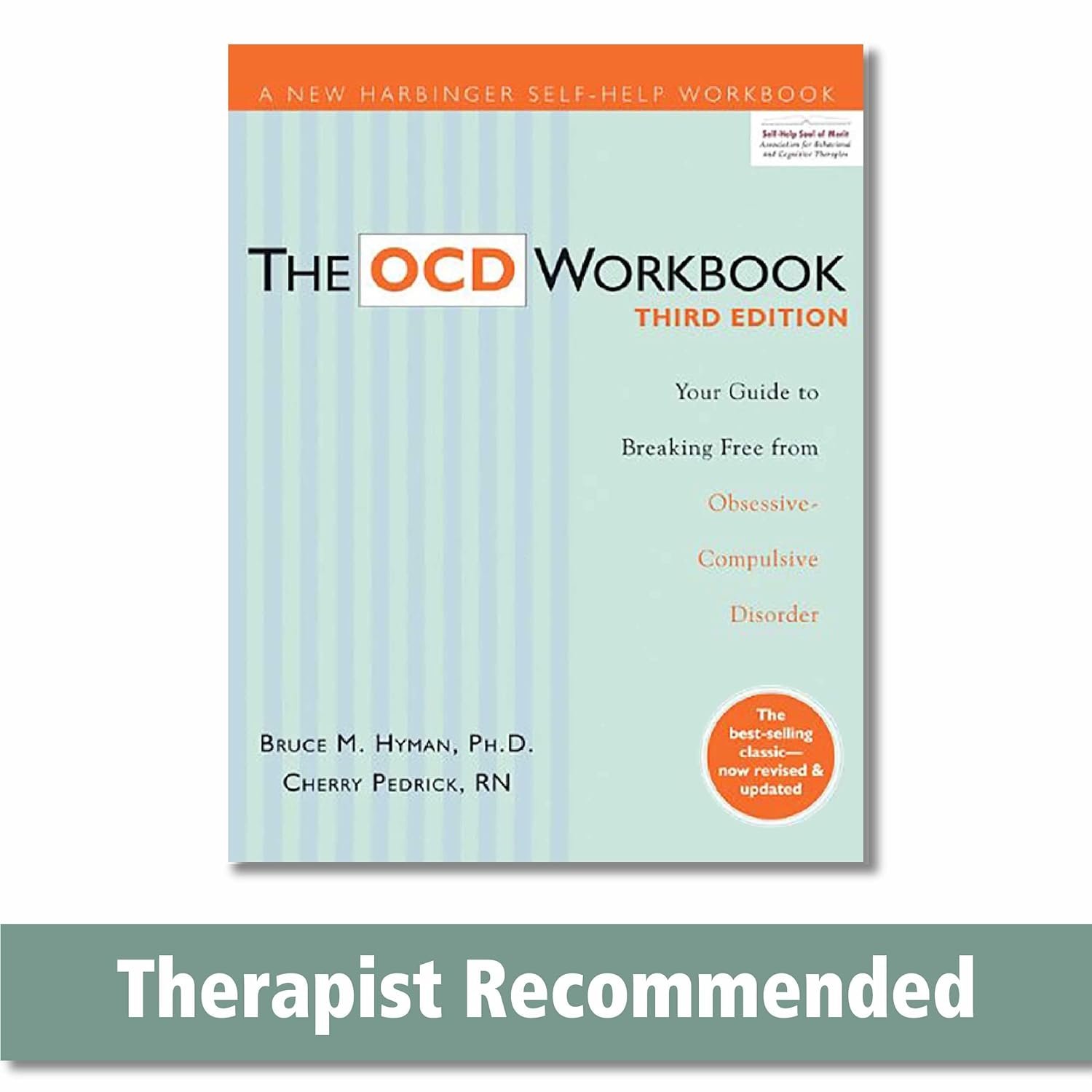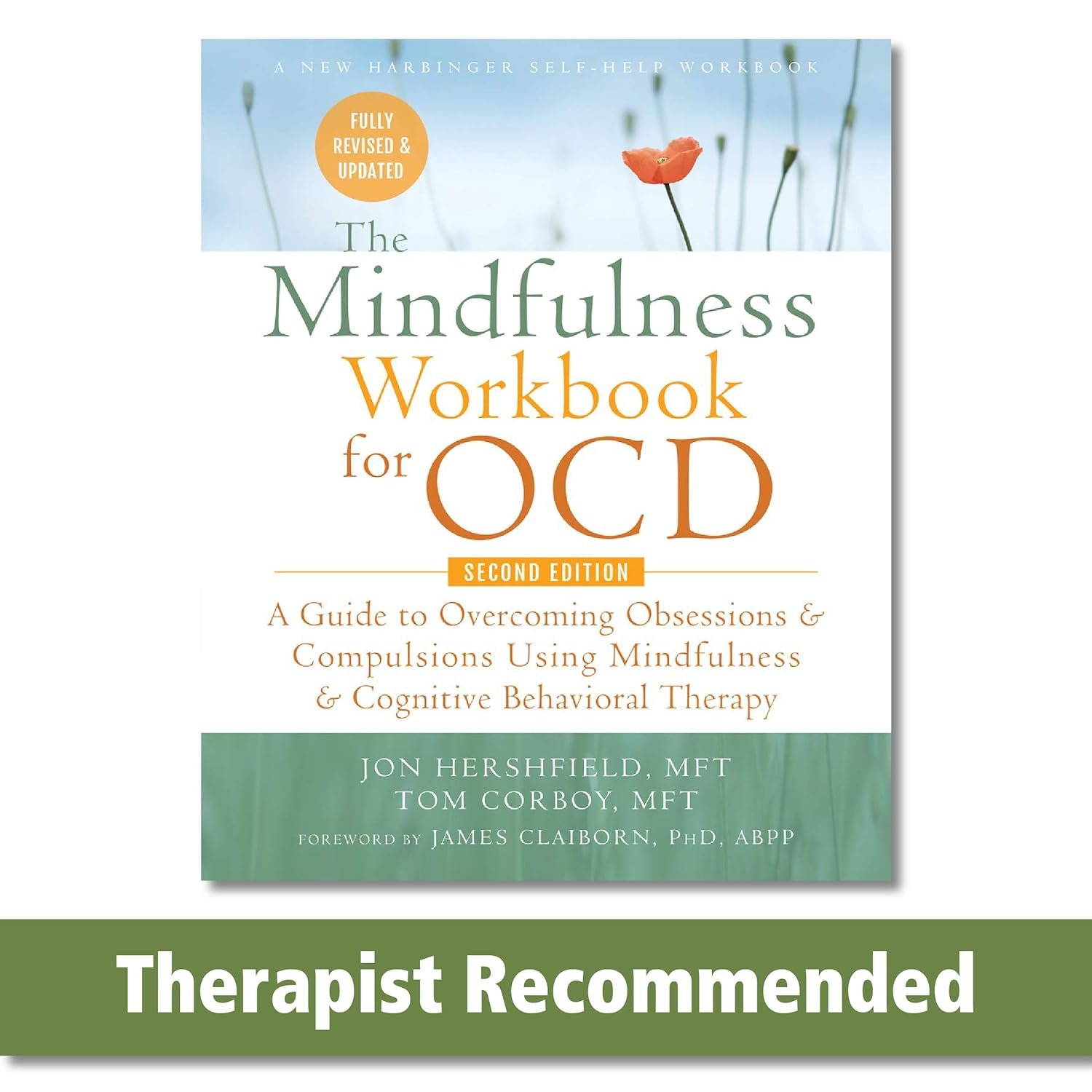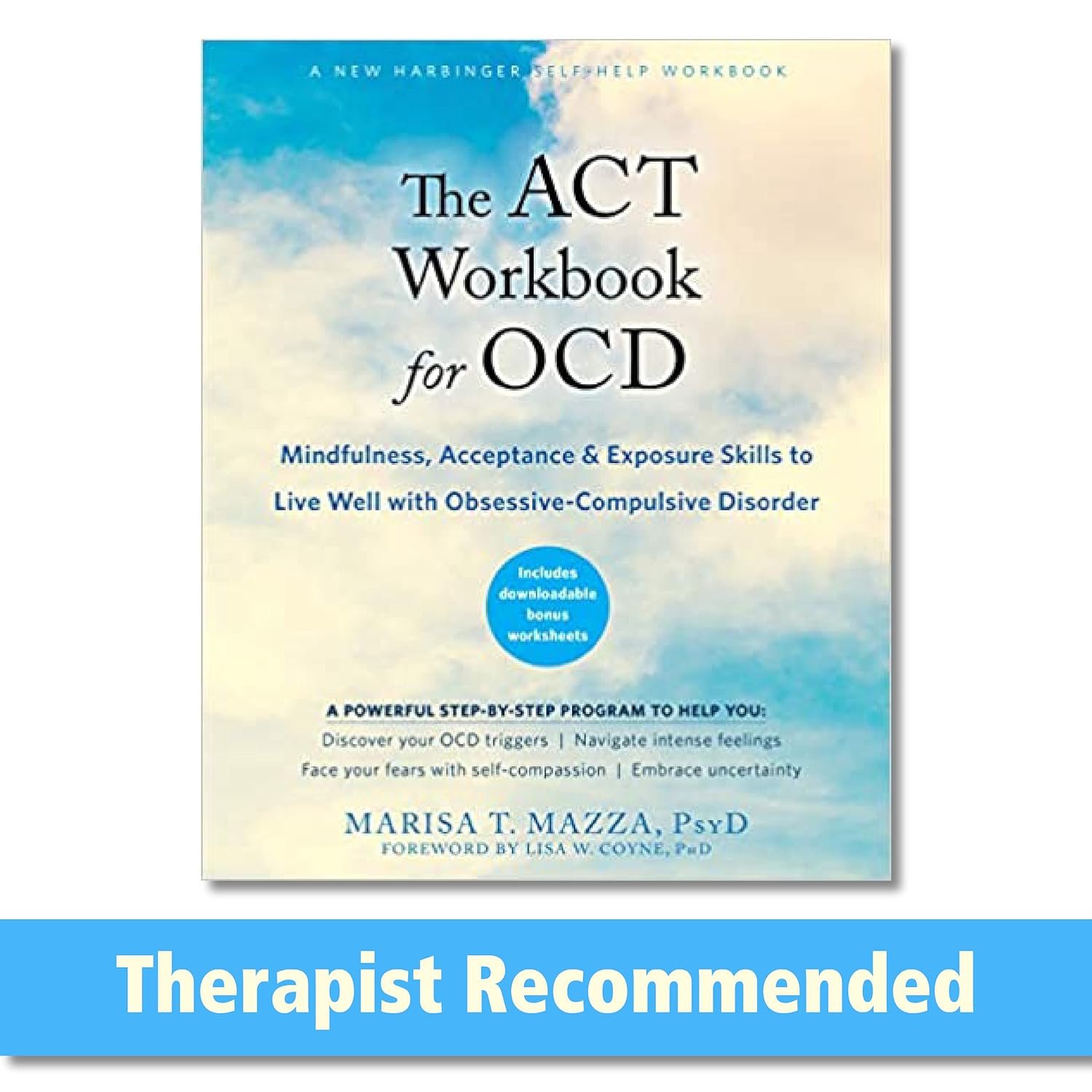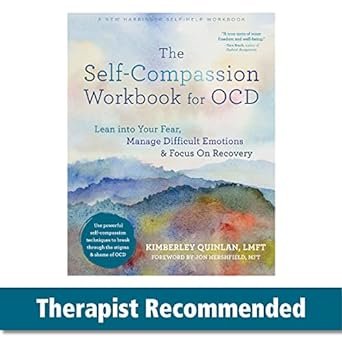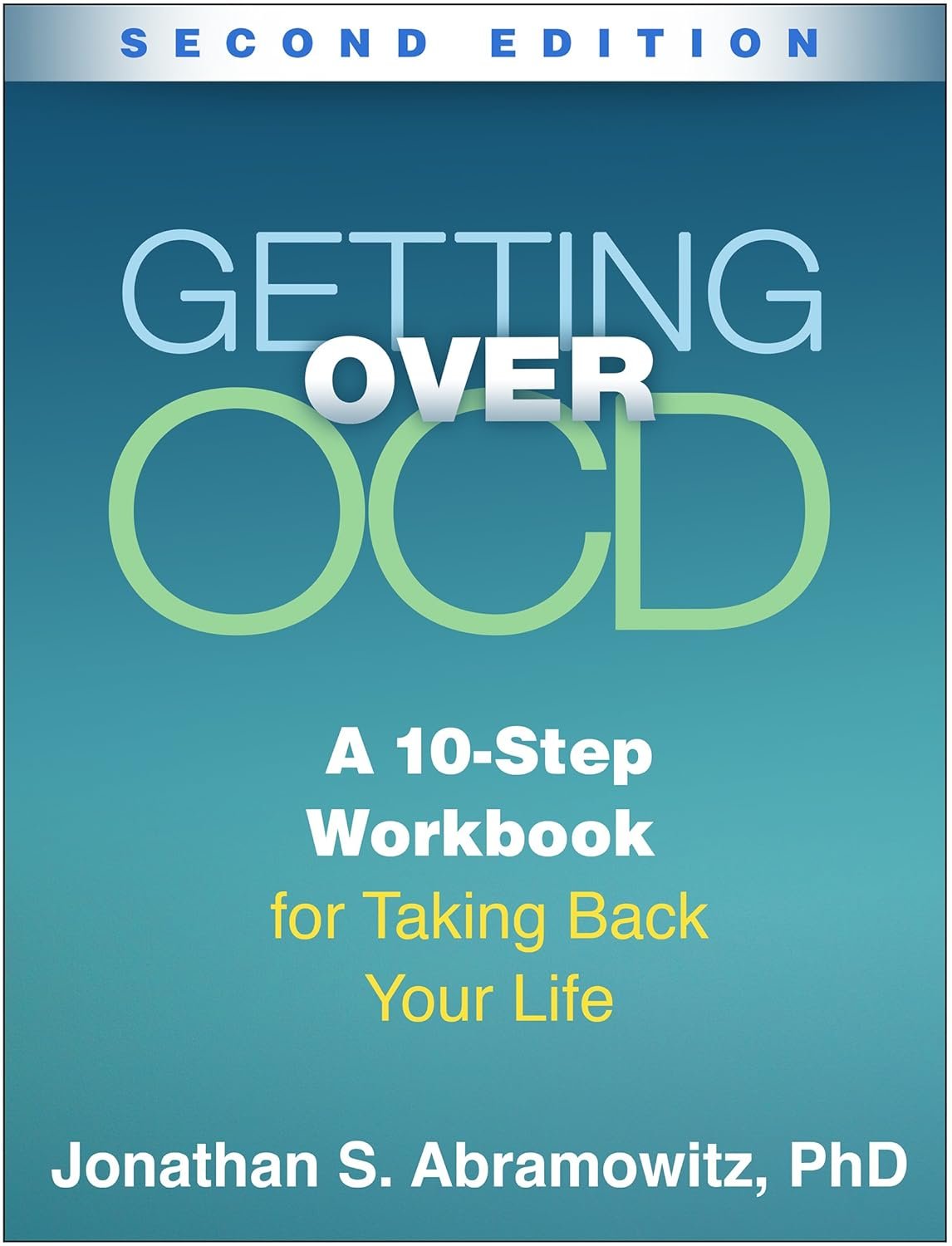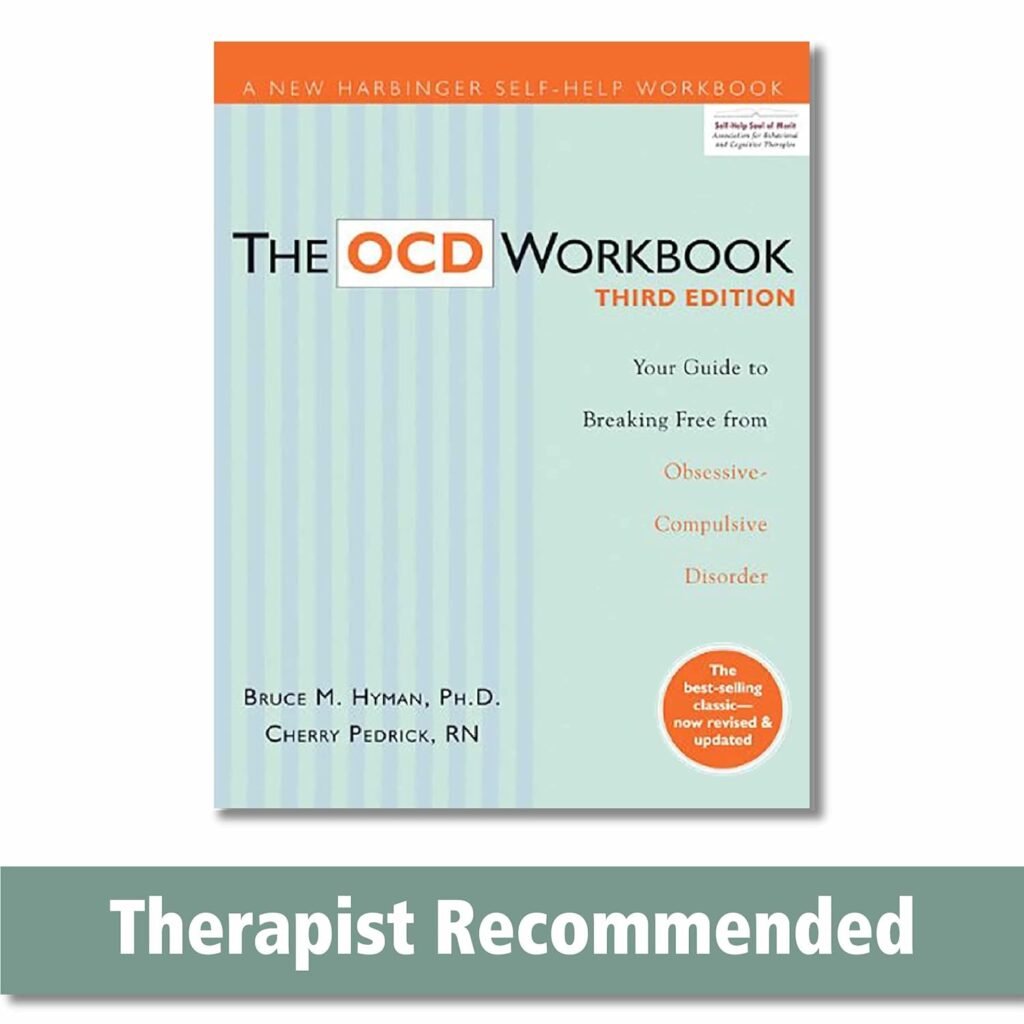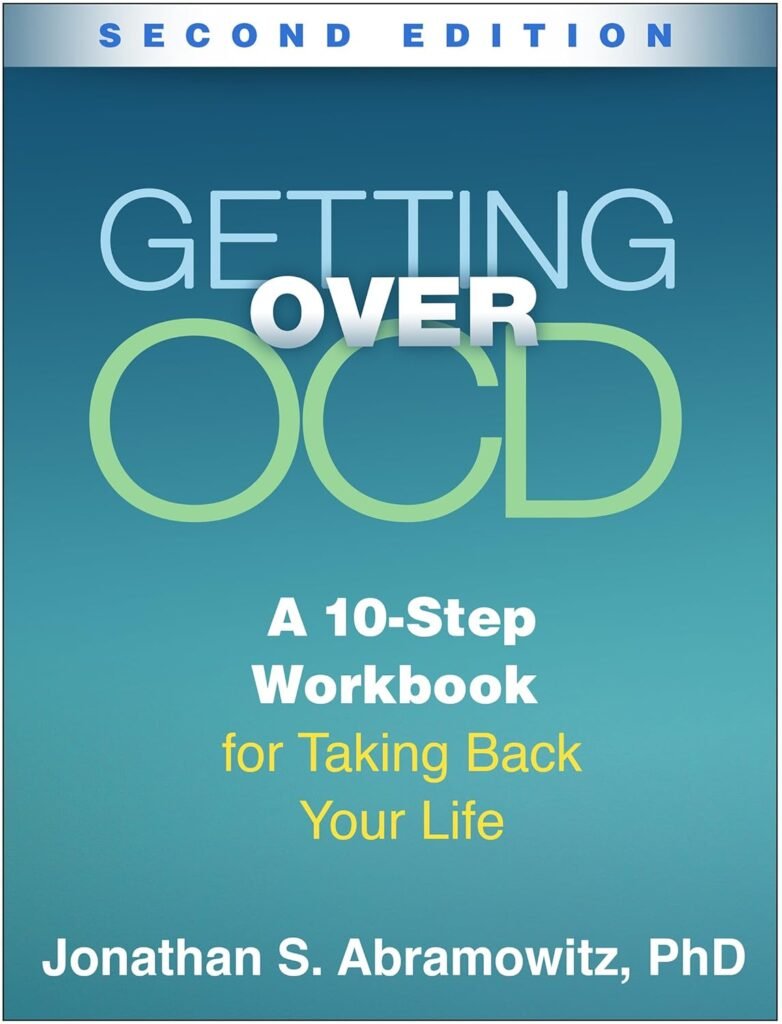Managing Obsessive-Compulsive Disorder (OCD) requires more than just therapy and medication; self-help tools like workbooks can be incredibly effective in guiding individuals through practical steps to manage their symptoms. With numerous workbooks available, it can be challenging to find the best OCD workbook just for you. In this article, we’ll review the top five OCD workbooks currently available, comparing their strengths, weaknesses, and key differences to help you make an informed decision.
Product | Therapeutic Approach | Focus Areas | Best For | Cons | Price | |
|---|---|---|---|---|---|---|
CBT, ERP | Comprehensive OCD management | Individuals seeking in-depth CBT | May be overwhelming due to detailed content | |||
Mindfulness, CBT | Mindfulness integration | Those who prefer mindfulness in treatment | May not appeal to traditional CBT users | |||
Acceptance and Commitment Therapy (ACT) | Psychological flexibility | Long-term OCD management | ACT approach may not resonate with everyone | |||
Self-Compassion, Mindfulness | Self-compassion, reducing self-criticism | Individuals struggling with guilt | Less focus on traditional CBT techniques | |||
CBT, ERP | Structured 10-step program | Those needing clear, actionable steps | May feel rigid; less focus on mindfulness |
Key Takeaways:
- OCD workbooks provide structured guidance: They offer exercises and techniques to help manage OCD symptoms through Cognitive Behavioral Therapy (CBT) and other methods.
- Variety in focus and approach: Different workbooks cater to different needs, such as mindfulness, self-compassion, or specific OCD subtypes.
- Choosing the right workbook is crucial: Your choice should align with your specific symptoms and preferred therapeutic approach.
Pros and Cons of the Top OCD Workbooks
1. The OCD Workbook: Your Guide to Breaking Free from Obsessive-Compulsive Disorder
- Pros: Comprehensive coverage of OCD symptoms; includes CBT techniques; widely recommended by professionals.
- Cons: Some readers may find it overwhelming due to its detailed content.
2. The Mindfulness Workbook for OCD


- Pros: Combines mindfulness with CBT; suitable for those looking to integrate mindfulness into their treatment; user-friendly.
- Cons: May not be as effective for those who prefer a more traditional CBT approach without mindfulness elements.
3. The ACT Workbook for OCD
- Pros: Focuses on Acceptance and Commitment Therapy (ACT); helps build psychological flexibility; excellent for long-term management.
- Cons: May not resonate with individuals unfamiliar with ACT principles.
4. The Self-Compassion Workbook for OCD
- Pros: Emphasizes self-compassion; ideal for individuals struggling with guilt and self-criticism related to OCD.
- Cons: Less focus on traditional CBT techniques; may not cover all OCD subtypes comprehensively.
5. Getting Over OCD: A 10-Step Workbook for Taking Back Your Life
- Pros: Structured 10-step program; clear and actionable steps; focuses on ERP (Exposure and Response Prevention).
- Cons: The step-by-step approach may feel rigid to some; less focus on mindfulness or self-compassion.
Major Differences Between the Workbooks
- Therapeutic Approach:
- CBT Focus: “The OCD Workbook” and “Getting Over OCD” are heavily focused on traditional CBT and ERP techniques, which are considered the gold standard in OCD treatment.
- Mindfulness and ACT: “The Mindfulness Workbook for OCD” and “The ACT Workbook for OCD” incorporate mindfulness and ACT, which are newer approaches that emphasize acceptance and present-moment awareness.
- Content Depth:
- Comprehensive Coverage: “The OCD Workbook” offers extensive information and is suitable for those looking for a deep dive into OCD treatment.
- Specialized Focus: “The Self-Compassion Workbook for OCD” and “The ACT Workbook for OCD” are more specialized, catering to individuals with specific needs like self-compassion or ACT-based therapy.
- Ease of Use:
- Step-by-Step Guidance: “Getting Over OCD” provides a clear, structured approach, making it easier to follow for those who prefer a straightforward path.
- Flexibility: “The Mindfulness Workbook for OCD” offers a more flexible approach, which can be beneficial for those who want to integrate mindfulness at their own pace.
How to Choose the Right OCD Workbook for You
Selecting the right OCD workbook is crucial to ensuring that it meets your specific needs and therapeutic goals. With various options available, here are some factors to consider when choosing the best workbook for your situation:
Consider Your Therapeutic Approach
- Cognitive Behavioral Therapy (CBT): If you’re looking for a workbook grounded in CBT, consider “The OCD Workbook” or “Getting Over OCD.” These books focus heavily on CBT techniques, particularly Exposure and Response Prevention (ERP).
- Mindfulness and ACT: If you’re interested in incorporating mindfulness or Acceptance and Commitment Therapy (ACT) into your treatment, “The Mindfulness Workbook for OCD” or “The ACT Workbook for OCD” might be better choices.
- Self-Compassion: For those who struggle with self-criticism and guilt, “The Self-Compassion Workbook for OCD” provides a unique focus on cultivating self-compassion as part of the treatment process.
Assess Your Symptom Severity
- Mild to Moderate Symptoms: If your symptoms are on the milder side, a workbook that provides general guidance and flexible exercises, like “The Mindfulness Workbook for OCD,” may be sufficient.
- Severe Symptoms: For more severe OCD, consider a workbook that offers a structured, step-by-step approach, such as “Getting Over OCD.”
Reflect on Your Learning Style
- Structured Learning: If you prefer a clear, structured approach, “Getting Over OCD” with its 10-step program might be ideal.
- Flexible Learning: If you like to incorporate exercises at your own pace, “The Mindfulness Workbook for OCD” or “The Self-Compassion Workbook for OCD” could be more suitable.
Tips for Getting the Most Out of Your OCD Workbook
To maximize the benefits of your chosen OCD workbook, consider these practical tips:
Set Clear Goals
Before starting, define what you hope to achieve with the workbook. Whether it’s reducing the frequency of compulsions or improving your overall mental health, having clear goals will help you stay focused.
Consistency is Key
Commit to working on the exercises regularly. Consistency is crucial in making progress, so set aside specific times each week to work through the exercises in your workbook.
Track Your Progress
Keep a journal or use the tracking sheets often included in these workbooks to monitor your progress. Reflecting on your improvements can boost motivation and help identify areas that may need more focus.
Integrate Workbook Exercises into Daily Life
The exercises in these workbooks are designed to be practical and applicable to real-life situations. Try to integrate the techniques you learn into your daily routine to see the best results.
Combine with Professional Therapy
While OCD workbooks can be incredibly helpful, they are most effective when used alongside professional therapy. Discuss the exercises with your therapist to ensure they complement your treatment plan.
The Science Behind OCD Workbooks
OCD workbooks are grounded in evidence-based therapies, primarily Cognitive Behavioral Therapy (CBT), Mindfulness, and Acceptance and Commitment Therapy (ACT). Here’s a closer look at the science behind these approaches:
Cognitive Behavioral Therapy (CBT) and ERP
CBT, particularly Exposure and Response Prevention (ERP), is the gold standard for OCD treatment. ERP involves gradually exposing oneself to feared situations or thoughts (exposure) while resisting the urge to engage in compulsions (response prevention). Workbooks like “The OCD Workbook” and “Getting Over OCD” are heavily based on these principles, providing exercises designed to help individuals confront their fears and reduce compulsive behaviors over time.
Mindfulness-Based Interventions
Mindfulness, which involves staying present and observing thoughts without judgment, is increasingly being integrated into OCD treatment. “The Mindfulness Workbook for OCD” applies these principles to help individuals manage intrusive thoughts by reducing their emotional impact and fostering a non-reactive approach to these thoughts.
Acceptance and Commitment Therapy (ACT)
ACT encourages individuals to accept their thoughts and feelings rather than trying to eliminate them. It also focuses on taking actions aligned with personal values, even in the presence of difficult thoughts. “The ACT Workbook for OCD” is built on this foundation, helping users develop psychological flexibility, which is key to managing OCD in the long term.
These therapies have been extensively researched and are supported by a wealth of clinical evidence demonstrating their effectiveness in reducing OCD symptoms. By following the exercises in these workbooks, individuals can apply these scientifically proven methods to their daily lives, leading to better management of OCD symptoms.
FAQ Section – Best OCD Workbook
Q: How long does it typically take to see results from using an OCD workbook?
- A: The timeline for seeing results can vary depending on the severity of your symptoms and your commitment to the exercises. Some individuals may start noticing improvements within a few weeks, while for others, it may take a few months. Consistency and patience are key.
Q: Can I use an OCD workbook if I’m also in therapy?
- A: Absolutely. In fact, many therapists recommend using workbooks as a supplement to therapy. Discussing the exercises with your therapist can enhance the effectiveness of both the workbook and your therapy sessions.
Q: Are OCD workbooks effective for all types of OCD?
- A: While many workbooks are designed to address a broad range of OCD symptoms, some may be more effective for specific subtypes. It’s important to choose a workbook that aligns with your particular symptoms and needs.
Q: Do I need to complete every exercise in the workbook?
- A: Not necessarily. While it’s beneficial to complete as many exercises as possible, some individuals may find certain exercises more relevant than others. Focus on the exercises that resonate most with your symptoms and goals.
Q: Can OCD workbooks be used by teenagers?
- A: Yes, many OCD workbooks are suitable for teenagers, especially those with more straightforward language and exercises. However, it’s important to choose a workbook that is age-appropriate and consider involving a parent or therapist in the process.
Myths and Misconceptions About OCD Treatment
There are several myths and misconceptions about using OCD workbooks and self-help tools in general. Addressing these can help individuals approach their treatment with realistic expectations.
Myth 1: OCD Workbooks Are a Substitute for Professional Therapy
- Fact: While OCD workbooks are valuable tools, they are not a substitute for professional therapy, especially for individuals with severe symptoms. These workbooks are most effective when used in conjunction with therapy.
Myth 2: All OCD Workbooks Are the Same
- Fact: Not all OCD workbooks are created equal. They vary in terms of therapeutic approach, focus, and depth. It’s important to choose one that aligns with your specific needs and treatment goals.
Myth 3: You Need to Follow the Workbook in Order
- Fact: While following a workbook in order can be helpful, it’s not always necessary. Some individuals may benefit from skipping ahead to sections that are most relevant to their current challenges. The key is to use the workbook in a way that best supports them.
Providing additional resources can help individuals find further support and information on managing OCD with workbooks and other tools.
Online Resources:
- International OCD Foundation (IOCDF): This foundation offers a wealth of information on OCD, including access to research, support groups, and resources for finding therapists who specialize in OCD treatment.
- National Institute of Mental Health (NIMH): The NIMH provides comprehensive information on OCD, including the latest research findings and treatment options, including workbooks and self-help strategies.
- Anxiety and Depression Association of America (ADAA): The ADAA is a valuable resource for individuals dealing with OCD, anxiety, and related disorders. They offer educational materials, support group directories, and information on treatment options.
- Mental Health America (MHA): MHA provides mental health screenings, information on various mental health conditions, and resources for finding help, including treatment and support for OCD.
Support Groups:
- OCD UK: OCD UK is a charity that offers support and information specifically for individuals with OCD. They provide access to support groups, resources, and educational materials to help manage symptoms.
- Depression and Bipolar Support Alliance (DBSA): The DBSA offers peer-led support groups and resources for individuals dealing with depression, bipolar disorder, and OCD.
- NAMI (National Alliance on Mental Illness): NAMI provides support, advocacy, and education for individuals and families affected by mental illness, including OCD.
These resources offer valuable support and information for individuals looking to manage their OCD through workbooks, therapy, and community support. Whether through online tools, books, or support groups, there are numerous ways to seek help and connect with others who understand the challenges of living with OCD.
Recent Developments in the Field
Recent studies have highlighted the growing acceptance of mindfulness and self-compassion in the treatment of OCD. These approaches, often integrated with traditional CBT, are gaining traction for their ability to address the emotional and cognitive challenges faced by individuals with OCD. Books and workbooks that combine these elements, such as “The Mindfulness Workbook for OCD” and “The Self-Compassion Workbook for OCD,” are becoming increasingly popular as they offer holistic treatment options that go beyond symptom management.
Top Experts and Entities in the Field
- Dr. Jon Hershfield – A renowned expert in the integration of mindfulness with OCD treatment. His work has significantly influenced the design and content of “The Mindfulness Workbook for OCD.”
- The International OCD Foundation (IOCDF) – This leading organization offers resources and research updates on the most effective treatment methods for OCD, including the growing use of workbooks in self-help strategies.
- Dr. Bruce Hyman – Co-author of “The OCD Workbook,” Dr. Hyman is a highly respected figure in the field of OCD treatment, known for his extensive work in developing CBT-based treatment protocols.
Further Reading
- Best Books for OCD: Unlocking the Mind
- Cheating OCD: Understanding the Obsessions
- Emotional Regulation Worksheet
- Best Mental Health Books for Young Adults in 2024
- Best Books About PTSD: Top 5 Recommendations
About the Author
This article was written by PaulWellness, an expert in mental health resources, providing insights and information to help you navigate your wellness journey.

